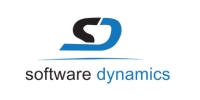I. Introduction
A. Importance of an End-to-End ERP and POS System for Retail Businesses
In today’s competitive retail landscape, efficient management of business processes is vital for success. Implementing an end-to-end ERP (Enterprise Resource Planning) and POS (Point of Sale) system can greatly benefit retail businesses in Kenya by streamlining operations, enhancing customer experiences, and ensuring accurate financial reporting.
B. Benefits of Implementing SalesLife 365 as Your Preferred Solution
SalesLife 365 is a powerful end-to-end ERP and POS system in Kenya designed specifically for the local retail industry. Some benefits of implementing SalesLife 365 include:
1. Seamless integration: SalesLife 365 connects all business operations, from inventory management to sales reporting, into one unified platform.
2. Retail-specific capabilities: SalesLife 365 offers features such as automatic inventory updates, in-depth sales reporting, and customer loyalty management.
3. Unified solution: You can manage your entire retail business across multiple channels with a single sign-on.
C. End-to-end ERP and POS system in Kenya
This article will provide a comprehensive guide to understanding, implementing, and maximizing the benefits of end-to-end ERP and POS systems in Kenya for your retail business.
II. Understanding ERP and POS Systems
A. Explanation of ERP Systems
ERP systems enable businesses to integrate, automate, and manage core processes such as inventory management, order processing, and customer relationship management with a real-time view of business information.
B. Explanation of POS Systems
POS systems help retail businesses manage transactions, track sales, and manage inventory using digital record-keeping. SalesLife 365’s system can be deployed in kiosks, mobile devices, or desktops.
C. How an End-to-End ERP and POS System in Kenya Works
An end-to-end ERP and POS system combines the best of both worlds to optimise retail management in Kenya. By using a seamless and unified platform, data flows back and forth between the POS and ERP systems effortlessly, ensuring efficient inventory management, financial reporting, and accurate customer insights.
III. The SalesLife 365 Solution: A Deep Dive
This solution is a powerful integration between Dynamics 365 Business Central ERP and SalesLife POS, providing a seamless and comprehensive retail management system. This combination allows businesses to unlock the true potential of data-driven operations, with smart features such as inventory tracking, real-time sales insights, and KRA eTIMS compliance. SalesLife 365 empowers organizations to navigate the complexities of modern retail sales, all in one convenient solution.
A. Features and Functionality
These features and functionalities make SalesLife 365 an ideal solution for retail businesses in Kenya, providing a comprehensive and integrated platform for managing their entire operations.
Inventory and Sales Management:
- Inventory Management: Efficient inventory and stock management to help businesses ensure product availability, reduce wastage, and control costs.
- Mobile POS: Access to mobile POS for retailers to perform transactions and serve customers anywhere.
- Comprehensive Sales Processing: An all-in-one retail management system for managing sales operations with increased productivity.
- Real-time Insights and Analytics: Powerful analytics and reporting capabilities, providing real-time insights into sales, inventory, and other business operations.
- Multi-Store Management: Managing multiple stores from a single platform, enabling better operational control and decision-making.
- Multi-Currency Support: Transacting and managing sales across different geographic regions without any limitations.
- Integration with Microsoft Dynamics 365 Business Central: A seamless integration for managing all aspects of business operations.
Integration and Customization:
- Seamless ERP Integration: Seamless sharing of data across finance, supply chain, and manufacturing functions, resulting in better financial visibility and profitability.
- ERP and POS System Integration: A unified and synchronized system for managing financial and operational aspects.
- Customer Relationship Management (CRM): Advanced CRM capabilities to help businesses manage customer interactions, lead generation, and sales growth.
- Powerful Reporting and Analytics: Detailed reporting and analytics capabilities, allow businesses to analyze sales trends, identify areas for improvement, and make data-driven decisions.
- Enhanced Security and Compliance: Advanced security features to ensure the safety and integrity of business data, and complies with industry standards for security and privacy.
- Integration with Microsoft Dynamics 365 Finance and Operations: A complete and unified solution for managing all aspects of business operations.
B. Why SalesLife 365 Stands Out from Competitors
SalesLife 365 particularly stands out from competitors due to its deep integration with Dynamics 365 Business Central ERP and SalesLife POS. This synergy creates an all-in-one retail management system, seamlessly unifying sales processing, inventory management, and real-time data tracking.
SalesLife 365 is meticulously crafted to accommodate Kenyan compliance requirements, such as KRA eTIMS. Besides its strong local focus, SalesLife 365 also incorporates powerful data-driven features through integration with tools like Power BI, offering retailers valuable insights into sales data and market trends. This all-encompassing solution, tailored for the Kenyan market and backed by robust, data-driven features, establishes SalesLife 365 as a leading choice among retail management solutions.

IV. Implementing an End-to-End ERP and POS System in Kenya
A. Pre-Implementation Steps
- Needs Analysis – Define your business’s requirements and goals to determine the optimal system configuration.
- Vendor Selection – Review SalesLife 365 as well as other ERP/POS solutions, evaluating features, costs, and vendor reputation.
- Cost and Budget Planning – Prepare your budget based on investment requirements, annual maintenance costs, and potential return on investment (ROI).
B. Implementation Process
- Data Migration – Transfer data from existing systems to SalesLife 365, mapping fields, and validating the results.
- Customization and Configuration – Set up workflows, data management, custom dashboards, and user-specific access rights based on your retail business needs.
- Testing and Training – Conduct thorough UAT (User Acceptance Testing) for approvals and invest in staff training to ensure successful adoption.
C. Post-Implementation Support
- User Training and Documentation: Provide comprehensive training to end-users on utilizing SalesLife 365 effectively and ensure thorough documentation of processes and best practices.
- Technical Support and Updates: Offer ongoing technical support to address any system issues or queries, and keep the system up-to-date with the latest features and security upgrades.
- Maintenance and Monitoring: Regularly monitor system performance, conduct preventive maintenance, and ensure data integrity, system security, and optimal functionality.
V. Common Challenges and Solutions of an End-to-End ERP and POS System in Kenya
A. Addressing Implementation Challenges: Proactively identify and address potential implementation challenges through careful planning, thorough testing, and adequate resource allocation.
B. Ensuring System Security and Compliance: Implement robust security measures to safeguard sensitive data and ensure compliance with relevant regulations, such as GDPR and local data protection laws.
C. Overcoming Adoption Issues: Develop a comprehensive change management plan, provide ongoing training and support, and communicate the benefits of the new system to encourage user adoption and utilization.

VI. Staying Updated with an End-to-End ERP and POS System in Kenya
A. Latest Trends in Retail ERP and POS
In the ever-evolving landscape of retail ERP and POS systems, several trends are shaping the industry. The integration of Artificial Intelligence (AI) and machine learning stands out as a key development, enhancing data analytics and providing valuable insights for businesses. Mobile POS solutions are also gaining momentum, empowering businesses to engage customers and conduct transactions seamlessly throughout the store. Moreover, omnichannel integration is becoming increasingly vital, allowing retailers to offer a cohesive shopping experience across various channels, be it online, in-store, or through mobile platforms.
Mobile Point of Sale (mPOS) systems play a pivotal role in this evolution, facilitating sales transactions through mobile devices and contributing to a smoother user experience with increased flexibility. The adoption of Cloud-based ERP and POS Systems is on the rise, offering improved accessibility, scalability, and reduced reliance on local infrastructure, making them a preferred choice among retailers in Kenya. Lastly, the incorporation of AI and ML technologies is helping retailers analyze vast amounts of data, generating actionable insights that enable informed decision-making. These trends collectively reflect the dynamic shift towards more efficient, flexible, and technologically advanced solutions in the retail sector.
B. Upcoming Features and Technologies
The future of ERP and POS systems in Kenya holds exciting prospects with the integration of cutting-edge technologies. IoT devices connected to ERP and POS systems will enable real-time data flow, enhancing both inventory management and customer service. Automation of repetitive tasks is another significant advancement, promising improved customer service, reduced errors, and lower operational costs. Additionally, blockchain technology is set to play a pivotal role in supply chain management, offering a tamper-proof and transparent solution to mitigate fraud risks and enhance inventory management for retail businesses in Kenya.
Looking ahead, the evolution of ERP and POS systems in Kenya may include advanced features like enhanced personalization capabilities, and leveraging customer data for tailored promotions and recommendations. Cloud-based solutions are expected to continually evolve, providing scalability and accessibility to businesses. Furthermore, the integration of IoT for real-time inventory tracking and automated processes is poised to revolutionize retail operations, ushering in a new era of efficiency and innovation.
C. Best Practices for an End-to-End ERP and POS system in Kenya
To ensure the ongoing effectiveness of ERP and POS system implementations, adopting best practices is essential. Periodic upgrades and system checks should be conducted to review and address potential vulnerabilities while incorporating the latest features and functionalities. Staff training is crucial to keep employees informed about new features and updates, ensuring sustained efficiency and productivity. Continuous monitoring and analysis of retail operations and performance data should be carried out regularly to identify areas for improvement and optimization.
For continuous improvement, it is recommended to engage in regular data analysis to detect and address operational inefficiencies. Staying informed about industry developments is vital to incorporate relevant advancements into the system. Actively seeking feedback from both employees and customers is another key practice, enabling the refinement of system functionalities based on real-world experiences. Embracing a culture of innovation and fostering flexibility to adapt to changing market needs are also critical components for continuous improvement in ERP and POS system implementations.
VII. Conclusion
A. Maximizing Your Investment in SalesLife 365
To maximize your investment in SalesLife 365, start by evaluating your business processes, sales, and inventory management needs. Next, determine the specific features and functionalities most suited to your industry and organization’s requirements.
Customize user roles and permission levels, set up crucial integrations, and optimize product hierarchies to streamline your workflows. Train employees on the platform to ensure they can make the best use of this robust solution. Establish a feedback system to gather insights continually tailor the solution for optimal performance, and stay updated on the latest features and enhancements via SalesLife’s blog, TikTok, and contact points.
B. Final Thoughts
Don’t let outdated systems and processes hinder your retail business’s growth and competitiveness in Kenya. Embrace end-to-end ERP and POS systems like SalesLife 365, unlocking the power of real-time information, streamlined operations, and actionable insights. Tackle the challenges of implementation, security, and adoption with a comprehensive plan, staying committed to continuous learning and improvement. For more information, visit SalesLife’s official website or email directly. Ensure your retail business thrives with SalesLife 365.




